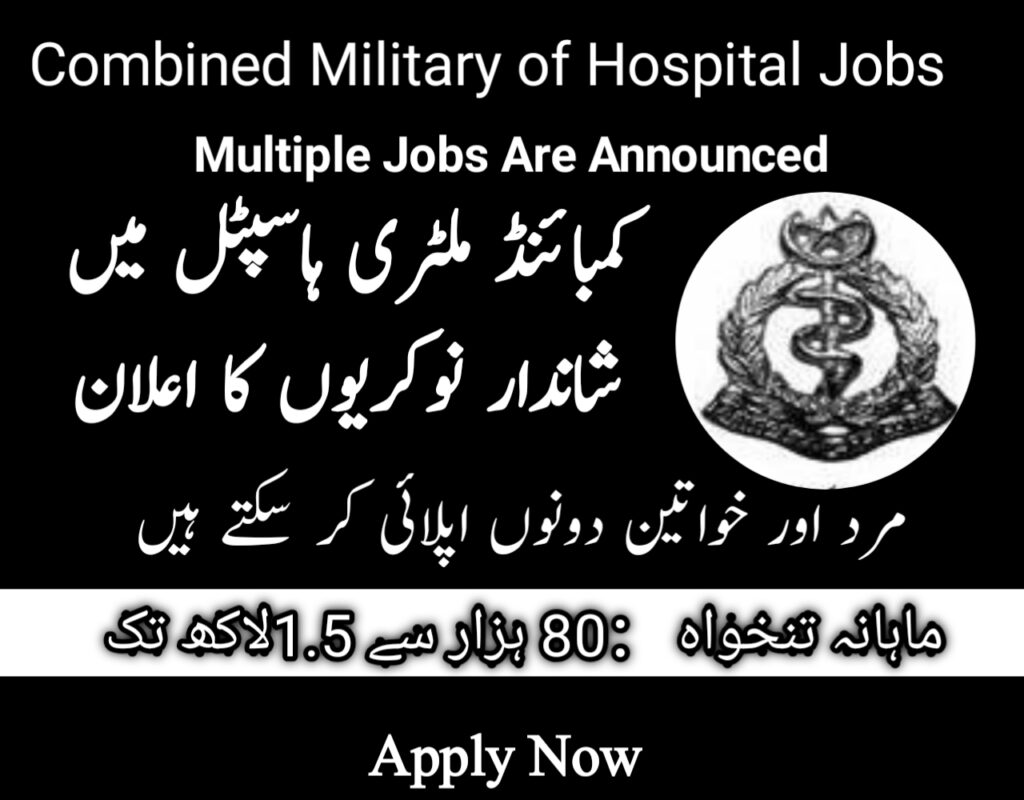Introduction:
The Combined Military Hospital (CMH) network in Pakistan stands as a cornerstone of the country’s healthcare infrastructure, serving the military personnel, their families, and civilians alike. Established to cater primarily to the healthcare needs of the armed forces, CMH has expanded its scope over the years to become a vital healthcare provider offering specialized medical services, training, and research. This essay explores the history, functions, significance, challenges, and future prospects of Combined Military Hospitals in Pakistan.
Historical Background:
The origins of Combined Military Hospitals in Pakistan can be traced back to the pre-independence era when British colonial authorities established military medical facilities to provide healthcare services to soldiers stationed in the region. Following the partition of British India in 1947, Pakistan inherited several military hospitals, which formed the nucleus of its military healthcare system. Over time, these facilities were expanded and modernized to meet the evolving healthcare needs of the armed forces.
Functions and Services:
Combined Military Hospitals in Pakistan offer a wide range of healthcare services, including:
Medical treatment:
CMHs provide comprehensive medical treatment, including primary healthcare, specialized consultations, surgeries, and emergency care, to military personnel, their families, and eligible civilians.
Specialized care:
CMHs offer specialized medical services in various disciplines such as cardiology, oncology, orthopedics, neurology, psychiatry, and rehabilitation, catering to complex healthcare needs and ensuring optimal patient outcomes.
Diagnostic facilities:
CMHs are equipped with state-of-the-art diagnostic facilities, including laboratory services, radiology, imaging, and pathology, enabling accurate diagnosis and timely intervention for patients.
Training and education:
CMHs serve as training centers for military medical personnel, providing medical education, residency programs, and continuous professional development opportunities to enhance clinical skills and expertise.
Research and innovation:
CMHs engage in medical research and innovation to advance healthcare knowledge, develop new treatment modalities, and contribute to scientific advancements in various fields of medicine.
Significance and Impact:
The Combined Military Hospital network holds significant importance in Pakistan’s healthcare landscape due to several reasons:
Healthcare for military personnel:
CMHs play a critical role in ensuring the health and well-being of military personnel, providing them with timely and comprehensive medical care to maintain operational readiness and morale.
Healthcare for families:
CMHs extend healthcare services to the families of military personnel, including spouses, children, and dependents, thereby addressing their healthcare needs and improving their quality of life.
Civil-military cooperation:
CMHs often extend their services to civilians residing in proximity to military installations, fostering goodwill and cooperation between the military and civilian populations.
Disaster response and emergency care:
CMHs are equipped to respond to emergencies and disasters, providing medical assistance, triage, and critical care to victims of natural disasters, accidents, and other emergencies.
Capacity building:
Through training, education, and research activities, CMHs contribute to capacity building in the healthcare sector, producing skilled medical professionals and advancing medical knowledge and practices.
Challenges and Limitations:
Despite their significance, Combined Military Hospitals face several challenges and limitations: 
Resource constraints:
Limited funding, staffing shortages, and infrastructure limitations pose challenges to the delivery of quality healthcare services and the implementation of advanced medical technologies in CMHs.
Accessibility:
CMHs are primarily located in urban centers and military cantonments, limiting access to healthcare services for individuals residing in remote and rural areas, especially civilians.
Civil-military coordination:
Coordination between CMHs and civilian healthcare providers can be challenging, particularly during emergencies or public health crises, necessitating improved communication and collaboration mechanisms.
Technological advancements Keeping pace with rapid technological advancements in medical equipment, treatment modalities, and healthcare management systems requires continuous investments and upgrades in CMH infrastructure and capabilities.
Future Prospects and Recommendations:
To address the challenges and enhance their effectiveness, Combined Military Hospitals can consider the following strategies:
Infrastructure development:
Investing in modern infrastructure, medical equipment, and facilities expansion to accommodate growing patient volumes and enhance service delivery capacity.
Human resource development:
Recruiting and retaining skilled medical professionals, including doctors, nurses, technicians, and support staff, through competitive incentives, training programs, and career development opportunities.
Public-private partnerships:
Collaborating with the private sector, non-governmental organizations, and international donors to leverage resources, expertise, and innovative solutions for healthcare service delivery, capacity building, and infrastructure development.
Community outreach:
Engaging with local communities through health awareness campaigns, preventive healthcare initiatives, and outreach programs to promote health education, disease prevention, and early intervention.
Conclusion:
The Combined Military Hospital network in Pakistan plays a pivotal role in safeguarding the health and well-being of military personnel, their families, and civilians. Despite facing challenges, CMHs continue to provide quality healthcare services, contribute to medical education and research, and support disaster response efforts. By addressing resource constraints, enhancing accessibility, fostering civil-military cooperation, and embracing innovation, CMHs can further strengthen their role as pillars of excellence in healthcare delivery and military support in Pakistan.
